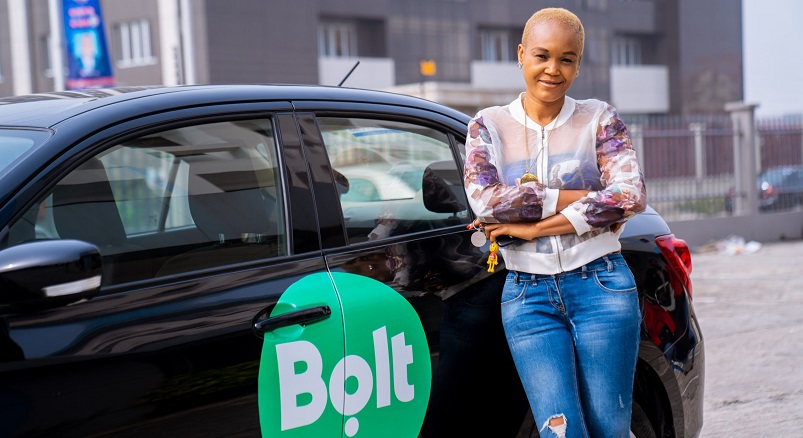Leading ride-hailing companies, Uber and Bolt, have been ordered by Kenyan transport authorities to implement a 50 per cent fare increase on rides. This is according to an order by Kenya’s Ministry for Roads and Transport directing ride-hailing companies to immediately adopt the pricing guidelines suggested by the Automobile Association of Kenya (AAK).
Under the AAK guidelines, per-kilometre rates will rise by approximately 50 per cent. For small engines (1050cc), per-kilometre fare will rise from Sh22 to Sh33.1, representing a 50.4 per cent increase. For medium engines (between 1051cc and 1300cc), the per kilometre fare will increase from Sh26 to Sh36.8, a 41.5 per cent increase.
Speaking about the new fares, Head of Licensing of the National Transport and Safety Authority (NTSA), Yahya Ahmed, said the increases are not new as the AAK’s guidelines have been sent to the ride-hailing companies since 2023.
However, it had not been enforced because of the absence of a unified regulatory framework in the company.

On his part, the Director of Road and Railways Transport, Paul King’ori, representing Kenya’s Transport Cabinet Secretary, Davis Chirchir, warned Uber and Bolt to adjust to the new AAK rates. He also gave them a seven-day window to respond with detailed procedures adopted to address the new increases.
See also: 5 major differences between e-hailing in Nigeria and South Africa
Kenyan drivers’ longstanding price battle with Uber and Bolt
e-Hailing drivers in Kenya have long agitated for improved fares and overall better welfare from app companies, especially Uber and Bolt.
Back in July 2024, drivers protested against high commissions, unfavourable fares, and the inability of the authorities to compel the companies to accept a fixed minimum fare of 300 Kenyan shillings (Ksh) per trip as stipulated by law.
Read here: Uber and Bolt drivers in Kenya protest non-implementation of 18% commission, Ksh 300 minimum fare
A driver who spoke about the matter said that the lack of enforcement “puts the drivers in a tight spot as they have very little left after factoring in fuel costs and the commission platforms like Uber and Bolt take.”
The drivers also threatened to start bidding for trips offline, a move that would take the price determination away from the app companies.


A month later, Bolt announced a 10 per cent increase in fares on its app. Per the new arrangement, the base fare for Bolt’s Economy category will be increased from 200 to 220 Kenyan shillings (Ksh).
Speaking at the time, Bolt’s General Manager for Rides, Linda Ndungu, said the increase was aimed at providing fair compensation while enhancing working conditions for its driver-partners.
“This fare adjustment is not just a price change but also a step towards acknowledging the value our drivers bring to the platform every day. We believe that this move will help our drivers earn a fair wage, which in turn will allow them to continue providing the reliable and safe transportation our riders depend on,” Linda said.
But that simply wasn’t anywhere near the fare the drivers believed was fair and just. Thus, last month, the Transport Workers Union of Kenya (TAWU Kenya) announced its intention to file a petition against ride-hailing companies, Uber and Bolt, over what it describes as unfair, exploitative, and unlawful digital labour practices that violate drivers’ constitutional rights.
In a statement to Technext, the General Secretary of the union, Nicholas Ogolla, said Uber and Bolt continue to violate drivers’ rights by deducting commissions above the legally mandated 18 per cent cap under the Digital Hailing Regulations of 2022.


He also accused the companies of unilaterally controlling pricing and reducing driver earnings, deactivating driver accounts without due process.
“Drivers are called ‘independent contractors’, yet Uber and Bolt control every element of work: pricing, penalties, and deactivation. That is not independence; that is exploitation,” the secretary said.
See also: Kenyan transport union to petition Uber and Bolt over exploitation of drivers
Thus, for drivers, the new order for the companies to adopt the 50 per cent fare increase would come as a well-earned reward at the end of protracted agitations. They are, however, not resting on their laurels, as they have threatened that failure by Uber and Bolt to adjust to the new pricing after seven days would result in renewed protests.
While this development may appear like a step in the right direction for the drivers, it, however, may not be so for the passengers, who also are not exempt from the effects of Kenya’s biting economy. Ultimately, the issue would shift to the matter of commissions, which has not been addressed by either of the app companies, as both still reportedly extract above the 18 per cent recommended by law.
An increase or reduction in fares favours either the drivers or the passengers, while taking nothing away from the app companies. A reduction in commissions is the only way the app companies can demonstrate a level of sacrifice if indeed they are keen on keeping both drivers and passengers happy.








